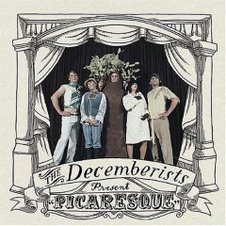During a recent exchange with Steve over at By Common Consent, it emerged that I was completely ignorant concerning a certain point in Mormon history. This incident revealed to me just how little I do know about church history, despite being raised in the church, attending four years of seminary and going on a mission. As Dave points out in an interesting post at Dave's Mormon Inquiry, the official church histories continue to shrink. This is, I think, indicative of the larger Mormon distrust of history and intellectualism in general.
Anti-intellectualism is ingrained into the Book of Mormon, especially 2nd Nephi:
"O the wise, and the learned, and the rich, that are puffed up in the pride of their hearts, and all those who preach false doctrines, and all those who commit whoredoms, and pervert the right way of the Lord, wo, wo, wo be unto them, saith the Lord God Almighty, for they shall be thrust down to hell!" 2 Nephi 28:15
There are numerous other scriptures with the same basic message: knowledge can be a very dangerous thing.
I think that this prevailing attitude has both positive and negative consequences. First of all, it does an incredible job of leveling the playing field between members. Having a (mostly) lay clergy means that few members are able to study the gospel as a full time job, and those that do usually don't have positions of local authority in the church. Thus it is difficult for a bishop, for example, to claim insights into the church that aren't available to other members. Generally, there is nothing to gain from trying to delve into the mysteries of the church. This makes the church a very democratic institution, which I feel is a good thing.
Secondly, favoring the spiritual over the intellectual stresses the simplicity and spirituality of the church. Epiphanies are to be spiritual in nature and result from prayer and fasting, not intellectual ones resulting from years of study. This can help the church focus on its core doctrines instead of straying too far into speculative theology.
The negative aspects are fairly obvious. We have a large percentage of members, almost certainly a majority, who are ignorant of most church history. This causes problems when they learn of some of the more troubling and ambiguous aspects of the lives of Joseph Smith and Brigham Young. It also robs them of a better understanding that knowing these events would provide.
Not just history but even current church scholarship is stigmatized. In my home growing up, Sunstone was regarded as a basically anti-Mormon publication. Sanitized histories are available but not more frank ones. I have never seen or owned copies of The King Follet Sermon and the Journals of Discourses; they are often quoted but rarely read.
I think that these attitudes limit us a two-dimensional view of our church, when we could be enjoying a richer (if more unsettling) three-dimensional panorama.
Subscribe to:
Post Comments (Atom)




9 comments:
What was wrong with what you said? If you're in error, so was Joseph Fielding Smith, who wrote:
"We have been taught since the days of the Prophet that the Urim and Thummim were returned with the plates to the angel. We have no record of the Prophet having the Urim and Thummim after the organization of the Church. Statements of translations by the Urim and Thummim after that date are evidently errors. The statement has been made that the Urim and Thummim was on the altar in the Manti Temple when that building was dedicated. The Urim and Thummim so spoken of, however, was the seer stone which was in the possession of the Prophet Joseph Smith in early days. This seer stone is now in the possession of the Church" (Doctrines of Salvation, vol. 3, p. 225).
When it comes to Church History, ignorance is bliss, it seems. To suggest ignorance is dangerous (or even that it is merely ignorant) is generally taken as betraying heretical tendencies.
Thanks for the cite, Anonymous. I reposted it back at BCC. It doesn't change the fact, though, that I don't own Doctrines of Salvation and have never been encouraged to study it.
This saves me a lot of time that I can spend doing scripture study (theoretically that is--I'm still inactive after all), but I think I am missing out on some big stuff.
I'm not sure it is accurate to describe the Church as anti-intellectual. The leaders of the church have always been huge advocates of higher education and post graduate degrees are very common throughout the church worldwide.
The most commonly quoted scripture on the subject is:
"But to be learned is good if they hearken unto the counsels of God." (2 Ne. 9: 29)
That really sums up the attitude about intellectualism in the church today too. We love intellectual if they are faithful ones.
I suspect your complaint is more against the correlation effort that has become necessary as we have become a worldwide church. The "meat" is still available but the church-distributed materials of necessity focus on the "milk". It is now more up to us as individuals to study doctrinal meat. The church will not spoon feed us.
You raise a good point, Geoff. The church does encourage obtaining higher degrees and study. However, this often doesn't extend to study about the church and church-related topics outside of approved church materials.
I liked Geoff's comments, too.
I've always found the tension between the idea of "get all the education you can" versus the idea of "there are some things that are true that aren't useful" (paraphrasing Boyd K. Packer here) to be very confusing.
Also, Church leaders have spoken out repeatedly about "so-called" intellectuals, and have vilified those who question the way things are done in the Church. I guess I see this as significant evidence that the "Church" is anti-intellectual (we'll see what happens after BKP passes on).
Anyway, I just came across this website, Ned. It's great. Coincidentally, I just watched my first episode of The Simpsons featuring Ned Flanders - you know the one where he opens a left handed shop and goes out of business because Homer makes a wish that Ned's business will fail? Funny. Ned reminds me of all kinds of Mormons - is there a connection to Mormons on The Simpsons like South Park?
Tess--
Ned reminds me of a lot of Mormons too, except for his fondness for beer.
Mormons get surprisingly few mentions on The Simpsons. The only one I can think of is a Halloween episode when Kang and Kodos approach the Simpsons' door and Homer says, "Oh great, Mormons."
Maybe we can make Ned an honorary Mormon, since he accidentally became a bigamist in the episode entitled, appropriately, Viva Ned Flanders.
SNAP, nshumate! Snap, indeed.
I think you've done the best job sizing up both the churches concerns and the faux faithfullness of the negative type of "intellectuals".
nshumate
You've caught it very well.
My favorite one was:
"I know that some of these narratives are false, and that all are one sided, but I need to publish them in criticism of the church because it is my area of interest for research, and if the Church won't cooperate with me, I have to go forward with what I have, even if it is fals, hurtfull and misleading. Otherwise I'd deny my personal truth."
Post a Comment